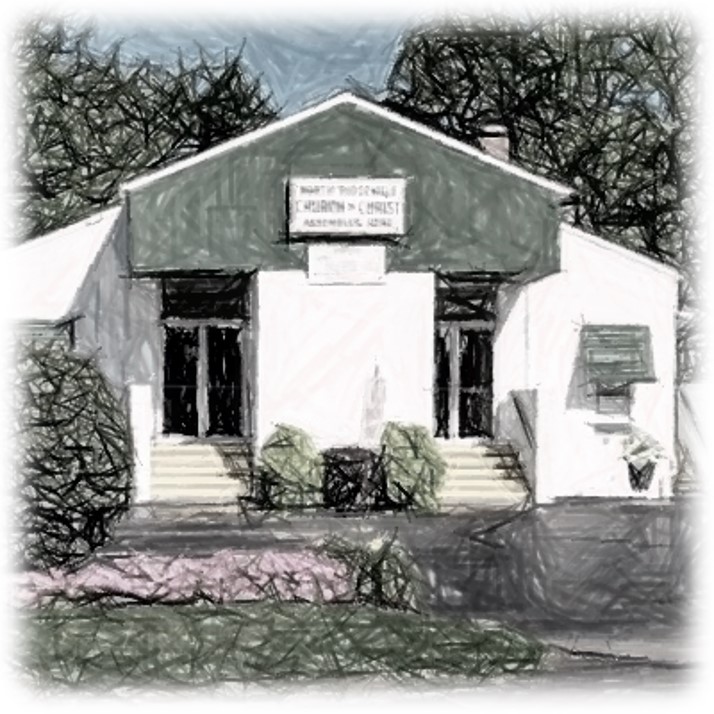"The Plan of Salvation" (2)
Steven J. Wallace
"in flaming fire taking vengeance on those who do not know God, and on those who do not obey the gospel of our Lord Jesus Christ" (2 Thess. 1:8).
Have you obeyed the gospel? We know the gospel is to be obeyed. What is required for the sinner to contact the precious blood of Jesus? In the previous article, we looked at the hearing, the believing, and the action of repentance. Shall any of these be excluded from the gospel plan of salvation? How can they? Likewise, shall we exclude:
Confession?
Must Christ be confessed? Paul taught in Romans 10:9, 10:
"that if you confess with your mouth the Lord Jesus and believe in your heart that God has raised Him from the dead, you will be saved. For with the heart one believes unto righteousness, and with the mouth confession is made unto salvation."
We see that we are to confess the "Lord Jesus" and that such is for salvation. What does it mean to confess the lordship of Jesus?
We must first recognize that He rose from the dead—such an act shows that He is the Son of God (Rom. 1:4). When Thomas realized that Jesus had in fact risen from the grave, he confessed that Jesus was his Lord and God (Jn. 20:28). Therefore, confessing "the Lord Jesus" is to confess that Jesus is the Son of God and that He is our Lord and Master.
The Ethiopian Treasurer gives us an example of what this actually looks like. Before he was baptized, he made the good confession in Acts 8:37, "I believe that Jesus Christ is the Son of God."
Baptism?
The gospel plan of salvation requires a person to be baptized (immersed) in water for salvation. This is what God requires even though many have tried to cut this step off. As the other actions that we have spoken of are needed for salvation, so baptism is.
After talking about Noah's salvation through water, Peter observed,
"There is also an antitype which now saves us—baptism (not the removal of the filth of the flesh, but the answer of a good conscience toward God), through the resurrection of Jesus Christ" (1 Pet. 3:21).
That this is not Holy Spirit baptism is self-evident. What would a spiritual baptism have to do with Noah's floodwaters or with the parenthetical explanation, not the removal of the filth of the flesh? No one would confuse Spirit baptism with the washing away of dirt from the body. Holy Spirit baptism never had a drop of water in it (cf. Acts 2:1-4; 10:44-48). Further, Holy Spirit baptism was never commanded or performed by an apostle. However, water baptism was commanded and administered by disciples (Acts 8:36, 38, 39; 10:47). Such would warrant the clarification that Peter gave in 1 Peter 3:21.
Paul, like Peter in 1 Peter 3:21, places baptism as the link to connect with grace.
"Buried with Him in baptism, in which you also were raised with Him through faith in the working of God, who raised Him from the dead" (Col. 2:12).
To bury something shows that something died and every burial is significant because every death is. For the Christian, the old man of sin had been crucified and buried. That is a major component of Christianity!
"Knowing this, that our old man was crucified with Him, that the body of sin might be done away with, that we should no longer be slaves of sin. For he who has died has been freed from sin" (Rom. 6:6, 7, emp. added).
Equally important is that a new man rises with Christ from the watery grave to walk in the newness of life. Baptism is therefore shown from the Scriptures to be the meeting place of grace and faith. It is not a mere sign or church ordinance but a commandment of God to be obeyed to be saved. The Lord stated that belief and baptism are needed to be saved (Mk. 16:16).
Have you obeyed the gospel?
If not, why not? Avoid the fiery vengeance Paul spoke of in 2 Thessalonians 1:8 by heeding the Bible's teaching. If you have obeyed the gospel, are you faithful to Christ working as a member of His church which He purchased with His own blood (Acts 20:28)? He bought us with a price so that we can serve Him (1 Cor. 6:20). Jesus expects members of His body to fulfill certain duties and responsibilities in a local church. Are you meeting these duties (Eph. 4:15)?
.
